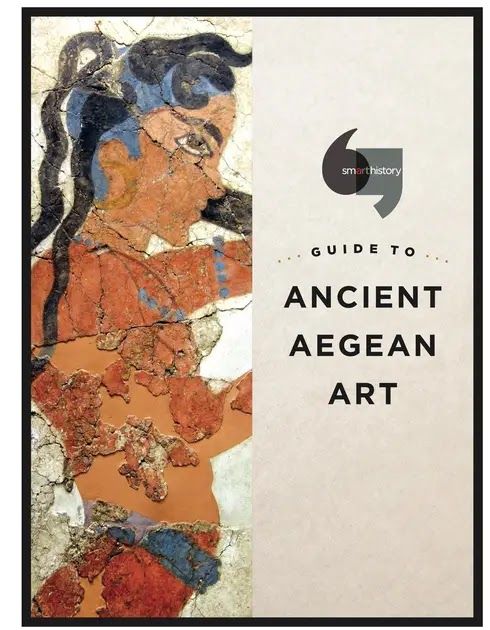
The ancient world, a crucible of intellectual ferment, witnessed two titans of civilization – the Greeks and the Romans – each leaving an indelible mark on the tapestry of human knowledge. While often viewed through the lens of shared classical heritage, their approaches to science, inquiry, and understanding the natural world diverged in fascinating and fundamental ways. The Greeks, propelled by a profound philosophical curiosity, embarked on a quest for universal truths and underlying principles, delving into theoretical abstractions that laid the very bedrock of scientific thought.
Their intellectual endeavors were not merely about gathering facts but about constructing comprehensive frameworks to explain the cosmos, humanity’s place within it, and the intricate workings of nature. This pursuit of knowledge for its own sake, driven by reason and systematic inquiry, formed the distinctive character of Greek science. They sought to understand *why* things were, not just *how* to use them, fostering a tradition of deep conceptual exploration that continues to resonate with us today.
The Romans, while prodigious innovators and master builders, inherited much of this Greek intellectual legacy but refracted it through the prism of their own practical genius. Their scientific advancements were, by and large, geared towards utilitarian outcomes, solving concrete problems of engineering, administration, warfare, and medicine. Consequently, many of the purely theoretical and philosophical scientific pursuits that captivated Greek minds were either assimilated for practical ends or simply not prioritized, creating a subtle but significant divergence in their scientific legacies.

1. **The Philosophical Quest for Universal Principles**
The ancient Greeks embarked on an unparalleled intellectual journey, driven by an insatiable curiosity to uncover the fundamental, underlying principles that governed the universe. Their scientific inquiry was deeply intertwined with philosophy, emphasizing reason, observation, and logic not just to describe phenomena, but to deduce the universal laws that orchestrated them. Thinkers like Aristotle and Plato championed this approach, seeking a coherent understanding of the cosmos as a whole, focusing on the “why” behind existence.
This quest transcended mere practical application; it was about building a robust theoretical framework for knowledge itself. Greek scientists were foundational in establishing the notion that the natural world could be understood through rational thought, rather than solely through myth or divine intervention. They believed that by systematic inquiry, humanity could grasp the overarching truths that sustained creation, contributing significantly to fields such as astronomy, physics, and biology through this lens of theoretical exploration.
For the Romans, while acknowledging and often adopting Greek philosophical traditions, the immediate utility of knowledge took precedence. The context clearly states that “for the practical Roman mind science had to provide useful information which could be used to ensure successful outcomes of real projects.” Long, purposeless discussions on a purely theoretical level were not for the Roman scientist. This meant that the Greeks’ philosophical quest for universal principles, while respected, was often transformed into practical applications or left as an academic exercise, rather than a primary driver for Roman scientific advancement.
Roman scientists, therefore, were less inclined to engage in extensive theoretical speculation for the sake of abstract understanding. Their patronage system, often sponsored by wealthy private individuals, also sought practical benefits, such as a reputation as a promoter of culture, rather than solely funding deep philosophical research. This fundamental difference in motivation shaped the scientific output of both civilizations, with the Greeks laying the conceptual groundwork and the Romans excelling in its practical implementation.
Read more about: 12 Simple Daily Rituals of 12 Famous Figures from the Renaissance: Lessons for Lifelong Success

2. **Pre-Socratic Materialist Cosmologies**
Centuries before the Roman Empire consolidated its power, early Greek philosophers, known as the pre-Socratics, were already grappling with profound questions about the origins of the cosmos. These materialist thinkers sought to provide rational, albeit often speculative, answers to the question: “How did the ordered cosmos in which we live come to be?” This was a departure from mythological explanations, marking a pivotal shift towards natural philosophy as a means of understanding the universe.
Figures like Thales of Miletus proposed that water was the fundamental substance from which all things originated and sustained themselves. Anaximander challenged this by suggesting an undefined “boundless” as the source, boundless in quantity, qualities, time, and space. Anaximenes, in turn, returned to a concrete substance, air, demonstrating its alteration through rarefaction and condensation with common observations and simple experiments. Heraclitus emphasized change as the fundamental reality, while Empedocles introduced the concept of four classical elements: fire, air, water, and earth.
These were not merely observations but attempts to construct comprehensive, materialist cosmologies based on observation and nascent reasoning. They represent the very genesis of theoretical physics and metaphysics, aiming to identify the ultimate constituents and processes of reality. This systematic, though diverse, intellectual inquiry into the nature of existence itself was a hallmark of early Greek thought, setting the stage for subsequent philosophical and scientific developments.
The Romans, while excellent engineers and managers of resources, did not engage in this level of abstract cosmological speculation for its own sake. Their focus on practical applications meant that the theoretical musings on the ultimate material source of the universe, while perhaps known through translated Greek texts, were not central to their own scientific output. The need to build an aqueduct or manage an estate did not require a deep, personal commitment to understanding if the world began with water or the boundless, demonstrating a clear difference in intellectual priority.
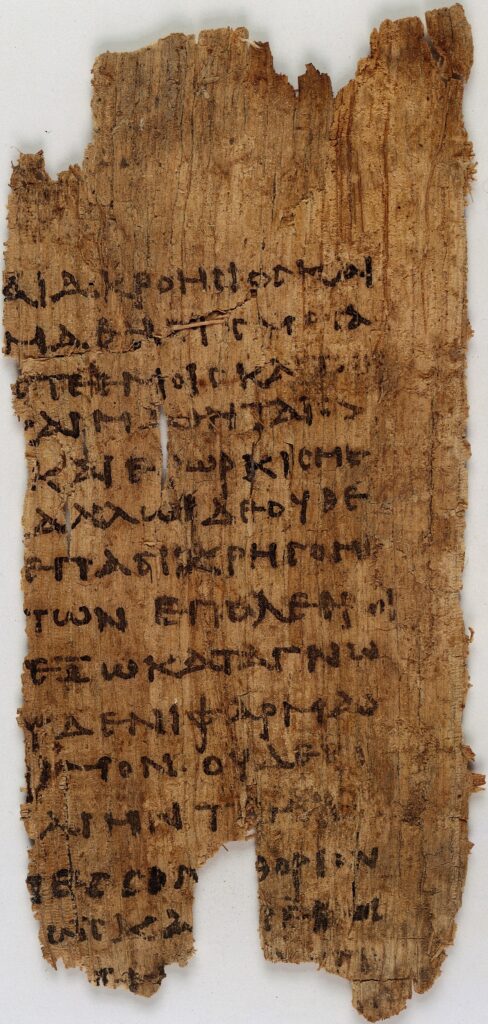
3. **Insistence on Natural Causes for Disease**
One of the most significant breakthroughs in Greek thought, profoundly influencing the trajectory of Western medicine, was the Hippocratic tradition’s unwavering insistence on natural causes for disease. Prior to this, illness was often attributed to divine wrath or supernatural forces, leading to approaches rooted in religious rituals rather than empirical treatment. The Hippocratic text *On the Sacred Disease*, specifically dealing with epilepsy, vigorously attacked rivals—temple healers—for their ignorance and for attributing epilepsy to divine wrath.
This movement sought to establish medicine as a rational, observable discipline, arguing that diseases, even those seemingly mysterious like epilepsy, had understandable natural origins. Although the author of *On the Sacred Disease* might have been “short on specific evidence and the treatment as vague as that of his rivals” when it came to fully explaining causes and effective treatments, the critical methodological step was the assertion that such causes *existed* and could be investigated. This laid the essential groundwork for clinical observation and diagnosis.
The ongoing rivalry among competing healing traditions—Hippocratic physicians, temple healers, herb collectors, and others—fostered “an active public debate about the causes and proper treatment of disease, and about the general methodological approaches of their rivals.” This intellectual ferment drove the push for more systematic understanding and moved medicine away from purely superstitious explanations towards an empirical and rational framework.
Roman medicine, while highly advanced in its practical applications, adopted much from the Greeks but focused more on “practical treatments and surgical techniques.” Roman physicians were skilled in setting broken bones and performing surgeries, and they established army hospitals. While they undoubtedly benefited from the Hippocratic shift towards natural causes, their emphasis was on *what worked* in terms of remedies and procedures, as seen in handbooks like Scribonius Largus’s *Compositones (Prescriptions)* for gladiators. The Romans were less focused on the *philosophical battle* for the underlying theoretical principles of disease causation, having largely assimilated the Greek premise without needing to re-litigate the philosophical debate that the Greeks initiated.
Read more about: Shannen Doherty, Star of ‘90210’ and ‘Charmed,’ Dies at 53: A Look Back at a Life Marked by Resilience, Stardom, and Unyielding Spirit

4. **Systematic Biological and Mineralogical Classification**
The Ancient Greeks demonstrated an early and sustained commitment to the systematic classification of the natural world, driven by a desire to understand its intricate order. Aristotle, a towering figure in Greek science, “wrote extensively on animals and plants,” embarking on an ambitious project to categorize and understand living organisms. His meticulous observations and attempts to group species laid foundational work for biology, moving beyond simple descriptions to a more structured, analytical approach.
Following in this tradition, Theophrastus, another influential Greek thinker, “produced the first systematic attempt to classify minerals and rocks.” This pioneering effort speaks volumes about the Greek intellectual drive to impose order on the vast diversity of nature, developing categories and systems that sought to reveal underlying relationships and characteristics. Such systematic classification was not merely an act of cataloging; it was an integral part of understanding the cosmos, reflecting the Greek emphasis on rational order and empirical research.
These early efforts in taxonomy were rooted in philosophical inquiry, seeking to understand the *essence* of things by distinguishing and relating them. The “legacy of Greek science in this era included substantial advances in factual knowledge due to empirical research (e.g., in zoology, botany, mineralogy, and astronomy), an awareness of the importance of certain scientific problems (e.g., the problem of change and its causes).” This highlights a fundamental Greek preoccupation with detailed, systematic organization of empirical data to build theoretical understanding.
The Romans, while benefiting immensely from Greek knowledge, approached this aspect with a different emphasis. Pliny the Elder, a prolific Roman author, “compiled a 36 volume encyclopedia, the *Naturalis Historia*, on the natural world – animal, vegetable, and mineral,” claiming it contained “no fewer than 20,000 facts.” While an astonishing feat of compilation, the Roman approach was more akin to encyclopedic documentation of existing knowledge and observations. The focus was on *gathering and recording* a vast array of facts, often for practical utility (e.g., for agriculture, remedies), rather than developing new theoretical frameworks for classification or engaging in deep philosophical inquiry into the *nature* of categories, as the Greeks had done.
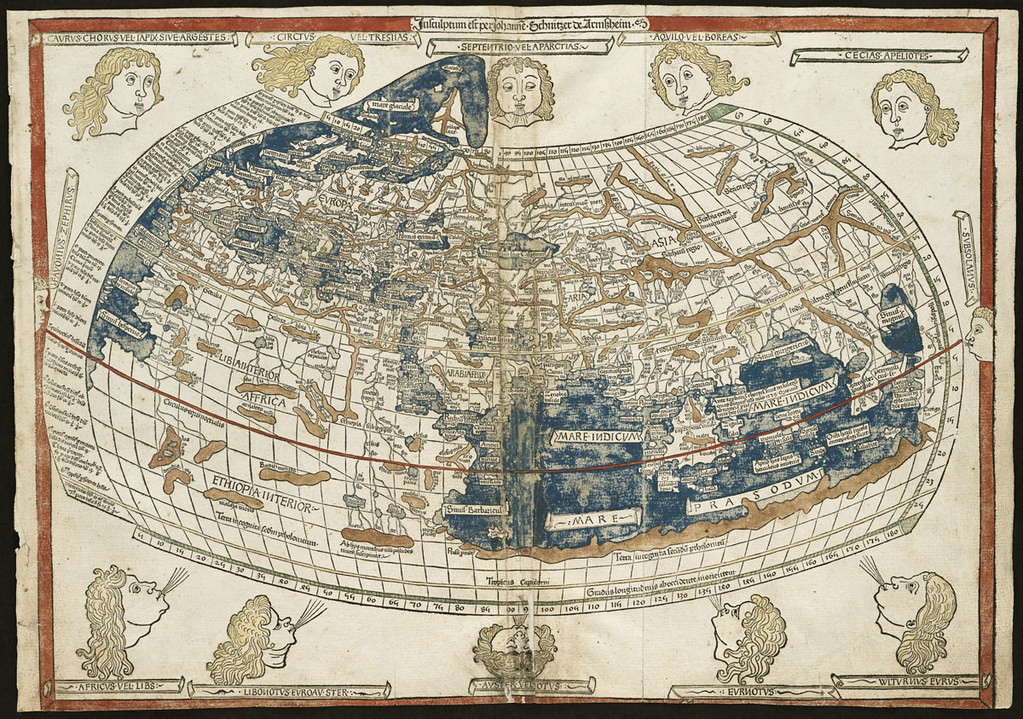
5. **The Geocentric Model’s Theoretical Framework**
Greek astronomers, most notably Ptolemy, developed highly sophisticated and comprehensive models of the cosmos, which included the geocentric theory of the universe. This model, placing Earth at the center with celestial bodies revolving around it, was not a mere observation but a profound theoretical construct. It sought to explain the complex movements of planets and stars through intricate mathematical and geometric principles, laying the foundation for modern astronomy by providing a systematic, predictive framework.
These models were the culmination of centuries of “sophisticated models of the cosmos,” driven by meticulous observations and rigorous mathematical reasoning. Greek astronomers made “important discoveries about the movements of the planets and stars,” endeavoring to fit these observations into a coherent, elegant, and ultimately predictive system. Their work was an intellectual tour de force, attempting to reconcile observed celestial phenomena with underlying theoretical principles, however complex.
The geocentric model, though later superseded, represented an extraordinary achievement in theoretical science. It was an ambitious attempt to understand the cosmic architecture, not just for practical uses like timekeeping, but for intellectual satisfaction and a deeper grasp of the universe’s mechanics. The Greeks poured immense intellectual energy into refining these models, engaging in abstract debates and calculations to achieve greater accuracy and philosophical consistency.
The Romans “adopted much of what the Greeks and Ptolemaic Egypt had achieved previously in the field of astronomy.” However, their emphasis was predominantly on the “practical applications of astronomy, such as creating calendars and predicting celestial events.” While they “built upon the work of Greek astronomers and made improvements to existing astronomical instruments, such as the astrolabe and the sundial,” they were less concerned with the deep theoretical underpinnings or the philosophical elegance of the geocentric model itself. The Roman interest was in the *utility* of astronomical knowledge for daily life, administration, and even astrology (used by emperors to justify policies), rather than engaging in the intricate theoretical development of cosmological models for purely intellectual pursuit. The fundamental theoretical drive that led to the complex Greek models was not replicated or significantly advanced by the Romans.
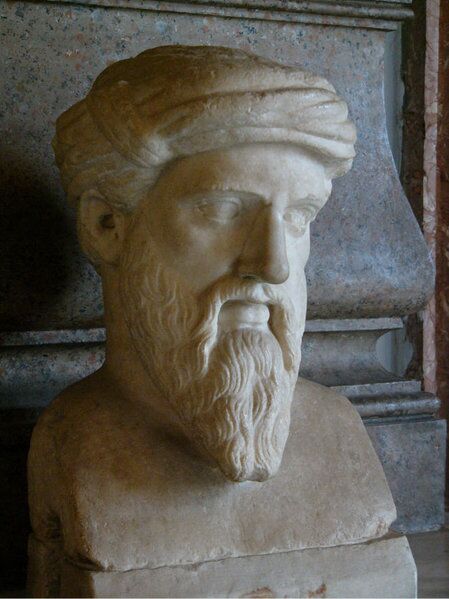
6. **Pure Mathematics and Geometry as Philosophical Disciplines**
For the ancient Greeks, mathematics, particularly geometry, was far more than a tool for measurement or construction; it was a profound philosophical discipline. Thinkers like Pythagoras and Euclid exemplified this approach, exploring abstract principles of number and space for their intrinsic intellectual beauty and their capacity to reveal universal truths. Greek mathematics was “strongly linked with philosophy,” seeking to understand the logical structure of reality through rigorous deduction and axiomatic systems.
Geometry, in particular, became a cornerstone of Greek thought, with Euclid’s *Elements* serving as a definitive text for centuries. It presented a system of axioms, postulates, and theorems that demonstrated how complex truths could be derived from simple, self-evident statements. This was a testament to the power of pure reason, establishing a method of inquiry that influenced all subsequent scientific and philosophical thought, emphasizing logical coherence and the pursuit of abstract, perfect forms.
The study of “pure mathematical subjects treated by Pythagoras and others were studied as part of a standard Roman education,” demonstrating an appreciation for this intellectual heritage. However, the Romans’ primary interest in mathematics, as stated, “tended to focus, too, on natural phenomena and astronomy,” and they “not only applied mathematics to problems of architecture but also to such essential administrative tasks as tax accounting and land surveys.” Their use of Roman numerals, while practical, also reflects a system more geared towards calculation and record-keeping than abstract mathematical theory.
While Romans were adept at applying mathematical skills to architectural marvels like “wide-spanning arches and supporting buttresses” and “complex designs,” their genius lay in the *application* of geometry to create functional and impressive structures. The profound philosophical exploration of geometry’s abstract principles, as pursued by Pythagoras and Euclid, was acknowledged and utilized, but the Roman mind was ultimately driven by the pragmatic outcomes of mathematical knowledge, rather than its purely theoretical expansion as a philosophical quest. The conceptual leap from empirical observation to abstract mathematical proof, a hallmark of Greek genius, was assimilated for its utility rather than actively propelled forward as an end in itself by the Romans.
Read more about: Decoding the Universal Quartet: An In-Depth Journey Through the Enduring Significance of the Number Four Across Science, Culture, and History
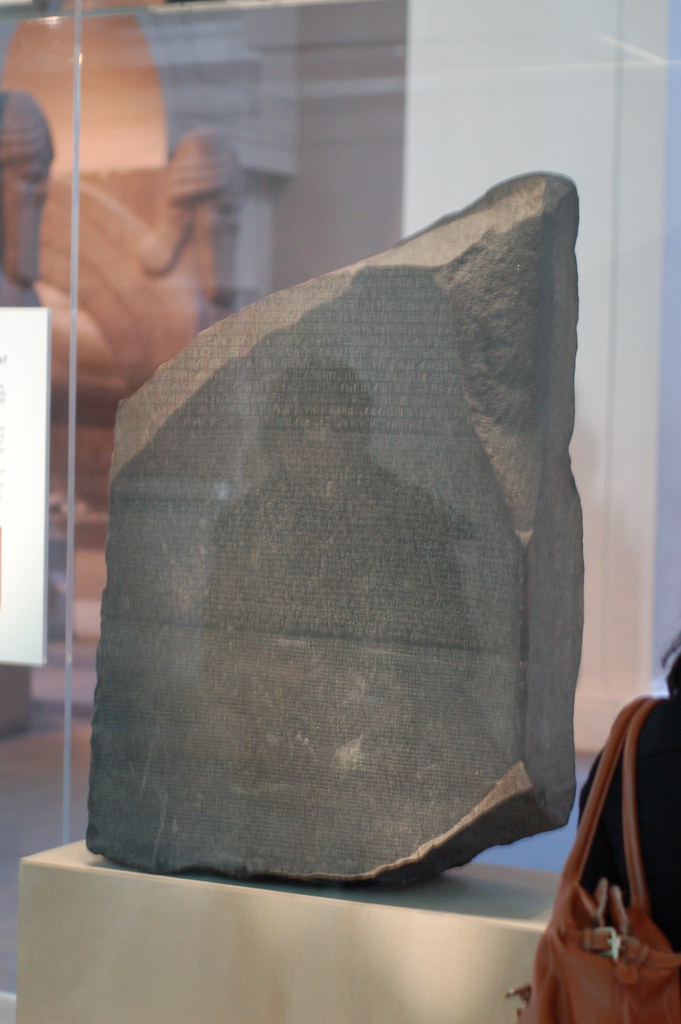
7. **The Greek Embrace of Systematic Inquiry and Methodological Rigor**
Greek scientists distinguished themselves through their profound emphasis on systematic inquiry and the development of rigorous methodologies. This intellectual pursuit involved more than just casual observation; it was about establishing clear criteria for truth, often by applying mathematical reasoning to natural phenomena. The legacy of Greek science from this era included significant strides in factual knowledge derived from empirical research across fields such as zoology, botany, and astronomy, demonstrating a clear commitment to structured investigation.
Consider the early Hippocratic tradition, which, despite limitations in specific evidence, made the crucial methodological leap to insist on natural causes for disease. This wasn’t just a shift in belief, but a foundational change in approach, fostering “an active public debate about the causes and proper treatment of disease, and about the general methodological approaches of their rivals.” This intellectual ferment pushed medicine away from purely superstitious explanations and towards an empirical and rational framework, even if definitive cures were still elusive.
Indeed, the very spirit of scientific investigation, one that seeks to isolate particular problems and attack them systematically, finds its roots in Greek thought. Even the later medieval example of studying rainbows by simulating conditions with “hollow glass balls filled with water” reflects a methodological approach directly traceable to Greek philosophical and scientific precedents. These investigators implicitly assumed “that nature was simple (i.e., governed by a few general laws) and that similar effects had similar causes,” a foundational belief echoing the Greek quest for universal principles.
For the Romans, while they made remarkable practical advancements, their approach to scientific methodology was decidedly more utilitarian. Roman scientists were “more focused on practical applications and problem-solving,” often relying on “trial and error, as well as the knowledge passed down from previous generations, to develop new technologies and techniques.” While highly effective for their immediate needs, this pragmatic approach often meant a sidestepping of the deep theoretical and methodological refinements that characterized Greek inquiry, prioritizing “successful outcomes of real projects” over the development of new systematic investigation frameworks for their own sake.
Read more about: Archaeologists Uncover 115,000-Year-Old Human Footprints Where They Shouldn’t Be: A Deep Dive into the Science of Discovery

8. **Unraveling the Philosophical Implications of Motion**
The ancient Greeks delved deeply into the philosophical implications of fundamental phenomena, none more central than motion. Figures like Aristotle meticulously explored the nature of change and causality, famously positing that “everything that moves is moved by something else.” This wasn’t merely a physical observation to be applied; it was a profound philosophical dictum that had far-reaching implications, even influencing later medieval theologians like Thomas Aquinas, who used it to argue for the existence of a Prime Mover, God. The Greek awareness of “the importance of certain scientific problems (e.g., the problem of change and its causes)” highlights their commitment to understanding the *essence* of such phenomena.
This deep theoretical engagement with motion reflected the Greek quest to understand the underlying principles of the universe. Their inquiries sought to explain *why* things moved and changed, and what fundamental laws governed these processes, rather than simply documenting the mechanics. It was a rigorous intellectual exercise, linking physics to metaphysics and laying the groundwork for future scientific thought that sought universal explanations rather than just immediate effects, thereby enriching the conceptual understanding of the world.
The Roman perspective on motion, in stark contrast, was almost entirely practical. For the “practical Roman mind science had to provide useful information” for projects. Physics, for them, had to be “of practical use to produce effective torsion catapults,” demonstrating a direct link between scientific understanding and military application. The mastery of “the mechanics of torsion machines,” and the ability to disassemble and reassemble artillery for mobility, showcased Roman engineering genius in optimizing motion for tangible, real-world objectives.
However, this focus on *how* to harness motion for military or construction ends meant that the abstract, philosophical exploration of its ultimate nature or causality that so captivated Greek thinkers was largely bypassed. The Romans were adept at applying existing principles to build and conquer, but the deeper philosophical debates about the *nature* of motion itself, which characterized Greek inquiry, were not a primary driver of Roman scientific advancement.
Read more about: 15 Common Myths About World War II That Historians Have Resoundingly Debunked

9. **The Quest for Universal Laws and a Rational Cosmos**
A defining characteristic of Greek scientific thought was its profound belief in the existence of universal laws governing the cosmos. This conviction stemmed directly from their philosophical quest to uncover “universal truths and underlying principles” and to construct “comprehensive frameworks to explain the cosmos.” The assumption that nature was inherently rational and governed by a few fundamental laws underpinned their entire intellectual enterprise, from their early pre-Socratic cosmologies to their intricate mathematical theories. They sought to grasp “the overarching truths that sustained creation.”
This Greek conceptualization of a rational, law-governed universe provided the fertile ground for the development of theoretical science. It encouraged the search for elegant, overarching explanations that could predict and account for a wide range of phenomena, rather than simply cataloging individual observations. The Greek emphasis on “applying mathematics to natural phenomena” was a direct manifestation of this belief, as mathematics was seen as the language through which these universal laws could be expressed and understood, moving beyond mere description to predictive power.
This philosophical stance, that the universe operated according to discernible, rational principles, deeply influenced subsequent intellectual traditions. Even in the medieval period, the implicit assumption that “nature was simple (i.e., governed by a few general laws) and that similar effects had similar causes” was a powerful methodological tool, reflecting a continuation of the Greek premise that the cosmos was an ordered, comprehensible entity, often attributed to a rational deity.
The Romans, while inheriting some of these concepts and applying them to their engineering, generally “did not engage in theoretical speculation to the same extent as the Greeks.” Their scientific endeavors were primarily geared towards “creating practical solutions to everyday problems.” While they benefited from the understanding that certain physical laws could be exploited for building structures or managing resources, their direct intellectual pursuit was not centered on defining or articulating these universal laws for their own sake. Instead, their “desire for authoritative answers to any questions they had about the world” was driven by the need for “successful outcomes of real projects,” reflecting a pragmatic, rather than purely theoretical, commitment to uncovering universal principles.
Read more about: Beyond the Wrench: What ‘Mechanics’ (The Science!) Secretly Thinks About Every Movement You Make.
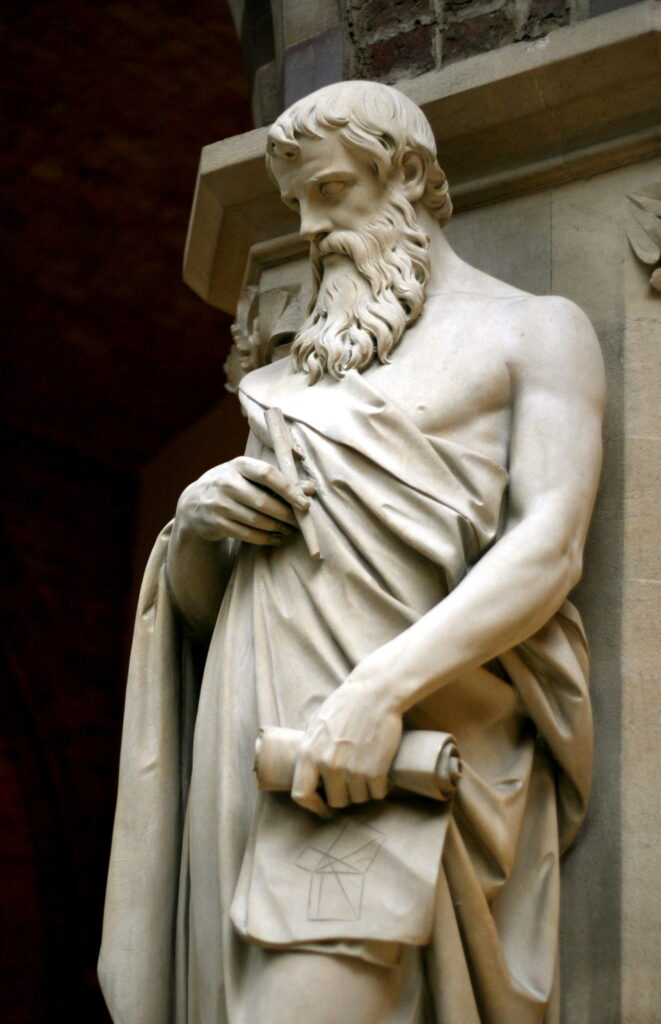
10. **The Power of Axiomatic Systems in Greek Thought**
The Greeks pioneered the development of axiomatic systems, particularly in mathematics and geometry, as a powerful method for building knowledge. Euclid’s *Elements* stands as a monumental testament to this approach, demonstrating how complex truths could be rigorously derived from a small set of self-evident axioms and postulates. This wasn’t merely about practical measurement or surveying land; it was a profound philosophical discipline that sought to understand “the logical structure of reality through rigorous deduction,” revealing abstract, universal truths.
This methodological innovation established a benchmark for intellectual rigor and logical coherence that profoundly influenced all subsequent scientific and philosophical thought. It provided a framework for theoretical refinement, allowing Greeks to develop sophisticated models, like the geocentric model of the cosmos, based on intricate mathematical and geometric principles. The “pursuit of abstract, perfect forms” through such systems was a hallmark of Greek genius, establishing criteria for truth that went beyond mere empirical observation.
The study of “pure mathematical subjects treated by Pythagoras and others were studied as part of a standard Roman education,” acknowledging their intellectual heritage. However, the Romans’ primary interest in mathematics was rooted in its utility. They “applied mathematics to problems of architecture but also to such essential administrative tasks as tax accounting and land surveys,” illustrating their focus on functional outcomes. Their use of Roman numerals, while practical for calculation and record-keeping, further underscores this pragmatic orientation.
While Romans were undeniably adept at applying mathematical skills to architectural marvels like “wide-spanning arches and supporting buttresses” and “complex designs,” their genius lay in the *application* of geometry to create functional and impressive structures. The profound philosophical exploration of geometry’s abstract principles, as pursued by Pythagoras and Euclid, was utilized for its utility rather than actively propelled forward as an end in itself by the Romans. The conceptual leap from empirical observation to abstract mathematical proof, a hallmark of Greek genius, was assimilated for its practical benefits, not for its theoretical expansion.
Read more about: Decoding Reality: 12 Essential Truths About ‘Truth’ You Need to Understand Now
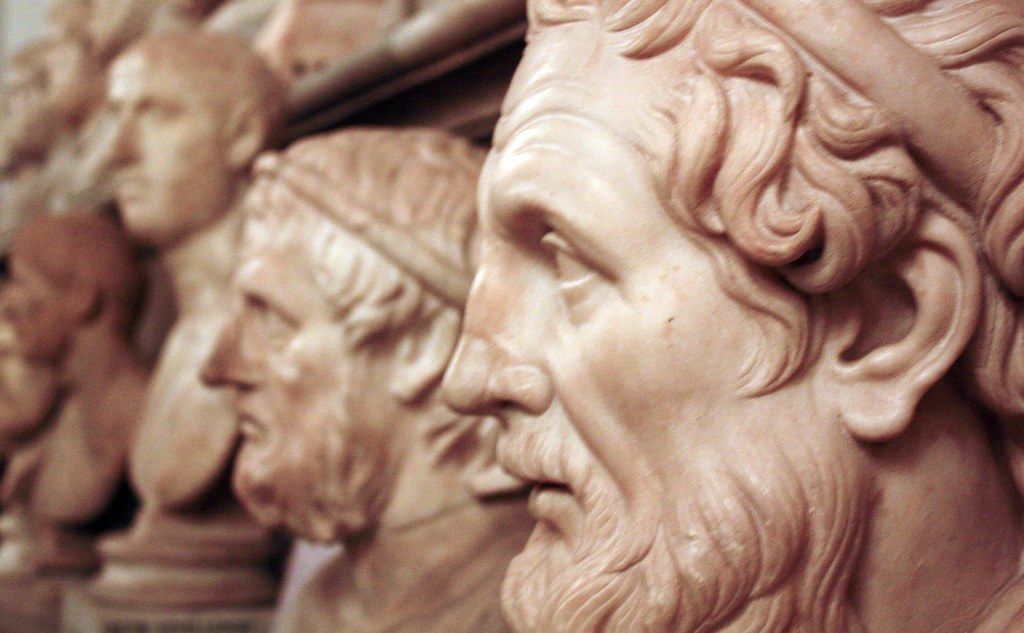
11. **The Greek Tradition of Critical Scrutiny and Theoretical Refinement**
The Greek intellectual landscape was characterized by an active and vigorous tradition of critical scrutiny and theoretical debate. Rather than passively accepting received wisdom, Greek thinkers, particularly in fields like medicine, engaged in “an active public debate about the causes and proper treatment of disease, and about the general methodological approaches of their rivals.” This intellectual ferment drove the push for more systematic understanding and the continuous refinement of theories, as seen in the Hippocratic insistence on natural causes for disease despite lacking specific evidence for treatment.
This emphasis on critical evaluation and methodological improvement was a cornerstone of Greek scientific development, laying “the groundwork for the scientific method as we know it today.” It fostered an environment where hypotheses were tested, refined, and sometimes even challenged through rigorous intellectual discourse. This dynamic process of questioning and refining, central to establishing criteria for truth, allowed for constant theoretical advancement and a deeper, more nuanced understanding of natural phenomena.
The spirit of not being “content… to repeat what the ancients had said” but rather subjecting “ancient texts to close critical scrutiny,” as described for medieval philosophers, has its clear intellectual lineage in this Greek tradition of theoretical refinement. This constant re-evaluation, driven by reason and philosophical inquiry, was crucial for building more robust and coherent scientific frameworks, even when it meant challenging established ideas.
The Romans, in their assimilation of Greek knowledge, adopted much that was useful, often translating and compiling works. While they “evaluated and then accepted or rejected that which was most useful,” their primary motivation was pragmatic utility rather than a deep, ongoing critical re-examination of foundational theoretical premises for the sake of intellectual advancement. Their role was more that of meticulous compilers and documenters, “preserving it for posterity,” rather than actively engaging in the kind of sustained, critical theoretical refinement that was a hallmark of Greek intellectual inquiry, which sought to challenge and improve fundamental concepts.

12. **The Pursuit of Knowledge for Its Intrinsic Value (Theoria)**
Perhaps the most profound distinction between Greek and Roman scientific thought lies in their ultimate motivations. For the ancient Greeks, knowledge was pursued not just for practical ends, but for its intrinsic value—a concept known as *theoria*. Their “profound philosophical curiosity” drove them on “a quest for universal truths and underlying principles,” leading them to delve into “theoretical abstractions that laid the very bedrock of scientific thought.” This pursuit of knowledge for its own sake, driven by reason and systematic inquiry, “formed the distinctive character of Greek science.”
This intellectual posture meant that Greek scientists were primarily concerned with understanding *why* things were the way they were, and with constructing comprehensive conceptual frameworks to explain the cosmos. Their contributions to fields like astronomy, physics, and biology emerged from this lens of theoretical exploration, seeking a coherent understanding of the whole rather than merely isolated facts or useful applications. It was about pure intellectual satisfaction and a deeper grasp of the universe’s mechanics.
They embraced the idea that theoretical understanding, even without immediate practical application, was inherently valuable and contributed to human flourishing. This ethos propelled them to make “important discoveries about the movements of the planets and stars,” not solely for calendrical purposes, but to refine their “sophisticated models of the cosmos” for intellectual satisfaction and a deeper grasp of the universe’s mechanics. The intellectual energy poured into refining these models, engaging in abstract debates and calculations, speaks volumes about this intrinsic drive.
The Romans, while acknowledging and valuing Greek contributions, ultimately had a different priority. As the context makes clear, “for the practical Roman mind science had to provide useful information which could be used to ensure successful outcomes of real projects.” “Long, purposeless discussions on a purely theoretical level were not for the Roman scientist.” Their scientific agenda was inherently pragmatic, focused on “utilitarian outcomes, solving concrete problems of engineering, administration, warfare, and medicine.”
While they effectively applied Greek knowledge and preserved it for posterity, the underlying Greek drive for theoretical understanding as an end in itself was largely “sidestepped” by the Roman emphasis on direct, tangible utility. Their scientific advancements, though monumental in their own right, were often a testament to their ability to implement and refine existing knowledge for practical ends, rather than to expand the frontiers of abstract *theoria*.
The journey through these ancient intellectual landscapes reveals not merely a comparison of achievements, but a profound difference in philosophical spirit. The Greeks, with their unyielding pursuit of ‘why’ and their dedication to theoretical elegance, sculpted the very foundations of scientific thought. The Romans, masters of the ‘how,’ brilliantly engineered a world that harnessed this knowledge for practical marvels, ensuring its immediate impact on their vast empire. Together, they forged a complex and complementary legacy, each indispensable, yet each embodying a distinct path on humanity’s endless quest to understand the universe around us and build upon the insights of those who came before.



